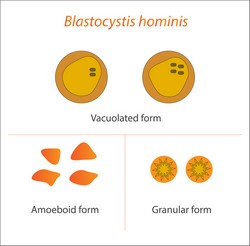Human gut parasites – Friend or foe?
According to current estimates, around a billion people in the world are unknowingly host to Blastocystis. A protozoan parasite, Blastocystis is now implicated in some human intestinal diseases, but its exact role is not well understood. The BLASTOHIT2012 (Clarifying the role of Blastocystis in human intestinal disease) project has investigated the prevalence and genetic diversity in human adults and children with no symptoms of gastrointestinal disease. A polymerase chain reaction assay showed that more than 50 % of the adult group had Blastocystis as a common inhabitant, but the protist was almost absent in the children. Collaboration with another study revealed that families' pet dogs did not actually host Blastocystis and are probably not a disease risk in this case. Moreover, the families with dogs had lower than the national average infection with the parasite. BLASTOHIT2012 also developed a novel set of primers to investigate the inter-species or inter-subtype diversity of Blastocystis within individual hosts. Replacing previously developed primers that were unsuitable for identifying mixed sets of Blastocystis strains and genotypes, they will prove invaluable in the study of what appears to be a complex situation. The pathogenicity of the parasite may be linked to certain virulent or opportunistic genotypes, or they are only virulent in certain circumstances such as a compromised immune system of the host. An interdisciplinary study, BLASTOHIT2012 has combined molecular microbial surveys of the human intestine with experimental microbial ecology and evolution to address assumptions regarding colonisation with Blastocystis. Commercialisation to produce new therapies for autoimmune diseases such as IBS looks promising.







